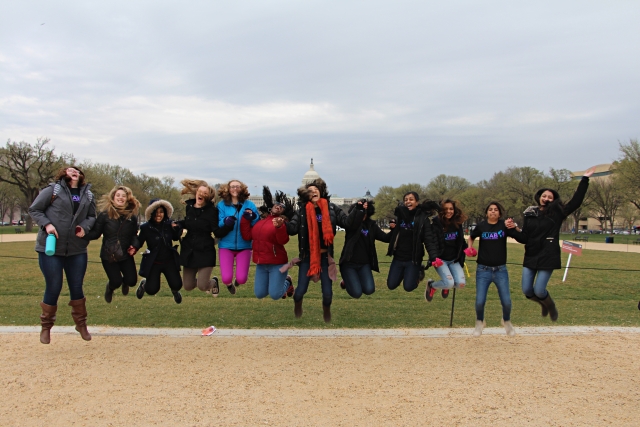USA: The Land of the Not-So Free
Note: This piece focuses on the topic of human trafficking.
It was our Senior Year of college. Our last Spring Break.
Should we jet off to Miami/LasVegas/beach/warm weather? Or… lead an alternative break service learning trip to Washington D.C.
My co-site leader and I both chose the latter. Together, we planned an awesome trip that would allow us to serve, learn, digest, break down, and question the very hush hush topic of… human trafficking.
The following, are snippets of our fun and enriching trip. Please feel free to reach out with questions or comments!
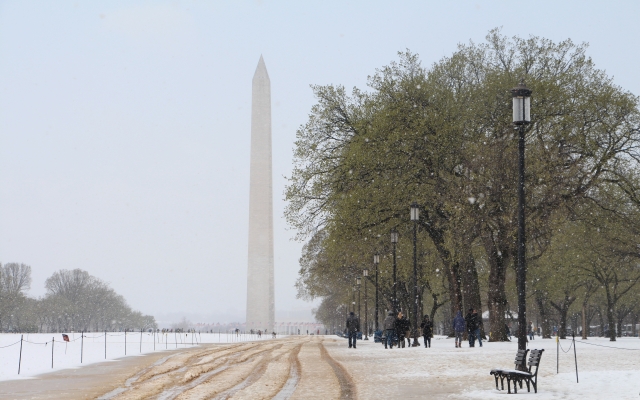 Impromptu storm in the National Mall. One moment it was sunny, the next it was snowing!
Impromptu storm in the National Mall. One moment it was sunny, the next it was snowing!
Table of Contents
Global Centurion
We began our trip with Global Centurion, a non-profit organization fighting human trafficking by focusing on the demand side of slavery aka the “perpetrators, exploiters, buyers, and end-users of human beings who fuel the market for forced labor and commercial sex” (Source).
We met the awesome Laura Lederer, who shared her career history working in this 21st century version of slavery.
“[Human trafficking] is your generation’s human rights issue.
– Laura Lederer, Founder and Director of Global Centurion
In partnership with Laura and Global Centurion, our team conducted a Person on the Street Survey in the National Mall to gauge public level of awareness on the topic of human trafficking.
Although our survey was not perfect, the activity was very eye-opening. We managed to talk with a couple hundred people and met several individuals who were only one to two degrees separated from human trafficking.
This really set the tone for the week.
What was the most shocking?
Backpage.com.
Basically real-life proof of human trafficking and prostitution existing in less than 10 miles away from my home. Think “Craigslist,” but instead of selling furniture, they also sell adult services. While sites like Craigslist have shut down their adult sections, Backpage continues to allow these advertisements.
It is one of the first places investigators will visit when a young girl is missing. Why? Many of the ads are for minors.
We typed in our hometowns on the website and were astonished to find very blunt ads in our local neighborhoods. It made me uncomfortable, realizing that human trafficking and prostitution is only a few clicks away! Also, the ads’ locations were only a few miles away from my house… practically in my backyard. This activity evoked many emotions: anger, disgust, uneasiness, sadness.
If you have a moment, visit the site, type in your location, and head to the dating section. Comment down below with what you find.
The CEO of Backpage.com, Carl Ferrer, was arrested last year, Oct 2016, on felony pimping charges. He was later cleared of all charges (Source).
What do you mean by “Hidden in Plain Sight”?
Human trafficking is in closer proximity to us than it may seem. It exists everywhere. And yes, even in the US.
In fact, only 8 blocks away from where we stayed in DC, there were girls standing outside on the streets. 8 blocks! #HiddenInPlainSight.
We watched the documentary, Very Young Gals, which explores “the commercial sexual exploitation of girls in New York City as they are sold on the streets by pimps and treated as adult criminals by police” (Source).
While the average age of a trafficked person is 13-14 years old, you must be 18 years old to enter a youth shelter. This dichotomy is powerfully explored in the documentary.
Watching the film, I couldn’t believe my eyes when I saw a young girl standing on a sidewalk… in Times Square! Growing up, I walked those same streets many times to visit tourist spots or go to Broadway shows… #HiddenInPlainSight.
Type of Pimps
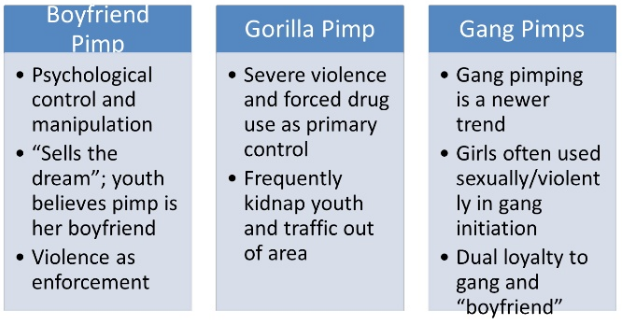
A pimp = a trafficker.
Learning about the role of a pimp in prostitution brought an entirely different meaning to the word itself. It made me think about how our culture perceives human trafficking and how the word “pimp” is used through phrases such as “Pimp My Ride” and “Pimp My Room.”
I don’t like pimps.
What was your favorite part of the trip?
Learning about the intersection of faith and anti-trafficking work.
The International Justice Mission (IJM) is an international Christian non-profit that also happens to be the world’s largest international anti-slavery organization. Pretty cool!
Every day, everyone in the office will come together for Daily Prayer. Prior to this, I mostly heard prayers meant for the individual and their relationship with God. But these prayers served a much different purpose.
They prayed for…
- A fire inside a Guatemalan home, which housed victims of sexual abuse. 40 dead.
- The IJM team of lawyers who were working on a murder case in Kenya.
- The positive steps being made in Chennai, India regarding bonded labor.
Really intense, emotional, and powerful stories.
I am not religious, but witnessing faith as a form of self-care resonated deeply with me.
After the trip, I followed their Instagram because I love how they share rescue updates on a regular basis.
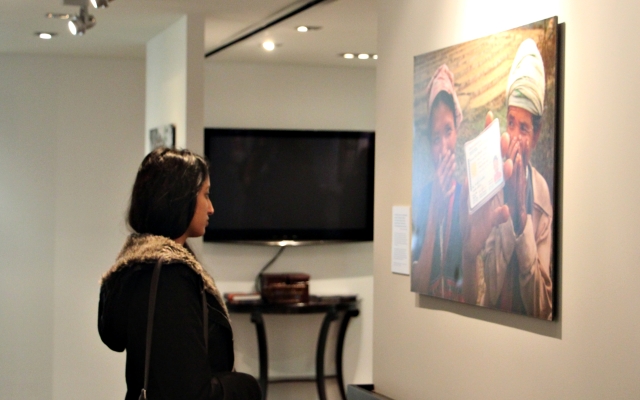
What are some examples of human trafficking?
- Prostitution – sex in exchange for some type of payment.
- Underaged prostitution.
- Diplomats who illegally bring over their servants from another country and take away their shoes so that they don’t run away.
- Children as young as 2 are trafficked from countries such as Bangladesh, Pakistan, and Sudan for use as jockeys in the Persian Gulf States’ camel racing industry (Source)
- Children mining coltan or “black gold” in the Democratic Republic of Congo for coltan, which is used as high density capacitors in your cameras, mobile phones and other compact electronic devices (Source)
What may a sex trafficking victim look like in the US?
- Many victims comes from upper income, 2 parent households.
- Large majority of victims sleep in their own beds at night.
- In many cases, sex trafficking = prostitution, especially since most victims are underage. In which case, these are also victims of rape, regardless if the sex is consensual or not.
Who is at risk?
Anyone. But especially those who don’t have their own needs met…. those who lack affection and affirmation.
Examples:
- Temporary visa holders
- Victims of prior violence and/or abuse
- People with developmental and physical disabilities
- Runaways and youth experiencing homelessness
- People with financially instability
- Undocumented foreign nationals
MYTH:
Victims choose this lifestyle.
This is false.
How many slaves work for you?
I took this survey to find out: slaveryfootprint.org/survey.
It asks you about your lifestyle (house size, electronic usage, clothes, activities, food). Then it estimates the number of people in forced labor who created the everyday products and services you use. According to this survey, 36 slaves work for me.
On one hand, YES, any number higher than 1 is wrong. On the other hand, it is important to be realistic too.
Should we consume less so we can love people more? Cheap clothes come at a high human price. (Learn more @ #FastFashion)
The truth is, the answer in our heart is sometimes no. And that’s okay.
…However, it also doesn’t make slavery okay. Nor should these people be forgotten.
To be completely transparent…
Spending a full morning talking about how humans are being violated and enslaved worldwide is a very heavy topic.
It’s difficult. It’s disheartening. It makes you angry.
I am so thankful that our guide, Jessica, sat with us during all of the moments when we felt so helpless. How have people sparked change in the past?
She explained to us how we have the power to change our conversations. To create political will. To use our anger in conjunction with movement to create change.
Working in anti-trafficking, Jessica also recommended therapy because second-hand trauma is very very very real. Self-care is the most important thing you can do if you want to care for other people.
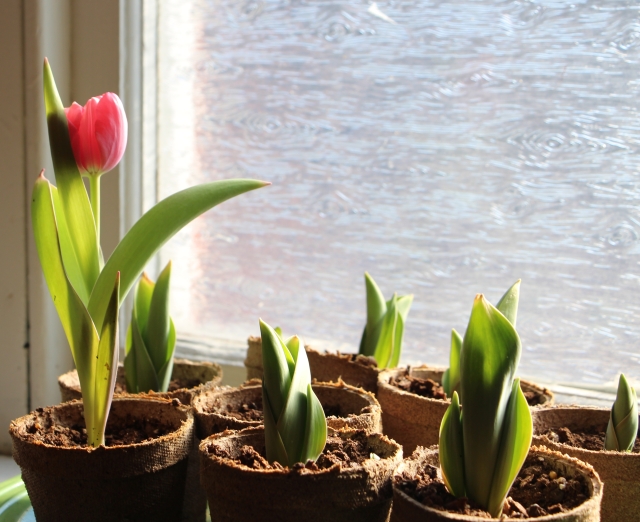
On the individual level,
what can anti-trafficking work look like?
We spent two afternoons with children at an after school program in Congress Heights, an underserved neighborhood in Washington D.C. The Program Director warmly encouraged us to talk about college so that children are aware this opportunity exists and to aspire for this level of education. I was very excited to meet one girl who wanted to be an engineer!
We played with the younger kids and helped the older kids with their homework packets. In one packet, there was a section to address anger management. Students answered prompts that asked them to process their feelings or work through conflicts with ease. I was never taught this in school so this was really cool.
And so normal.
You may ask, how does playing with kids relate to anti-trafficking work?
In short, spending time with children reaffirms that they matter. That they are loved, heard, and seen. That their lives have meaning.
Sometimes I forget that actions, even the ones that aren’t publicly recognized or celebrated, are important. When you take a moment to help someone on the street, you are doing anti-trafficking work.
And that’s kind of the point of how playing with kids or helping them with their homework… You, as an individual, can make a difference in a person’s life.
In addition to volunteering at your local Human Trafficking Task Force or safe house, writing letters to our lawmakers, getting involved in anti-trafficking work, etc…
What is the most important work we can do?
Love another human being.
Be conscious and deliberate with your lifestyle.
Understand how your actions may affect others. Also, think about what you may or may not want to do with this knowledge.
Be kind. Loving. Supportive.
Educate yourself:
- US National Human Trafficking Hotline – To help you feel safe online, there is a “Quick Exit” button that immediately directs you to the weather.com from their website.
- Walk Free Foundation – Created the Global Slavery Index, which compiles data about slavery in 167 countries each year.
Feel free to copy/paste. I added this to my email signature email signature: To report a potential trafficking situation or if you or someone you know needs help, call the National Human Trafficking Hotline toll-free, 24 hours a day, 7 days a week at 1-888-373-7888.
You are vital.
You matter.
And so do all other human beings.
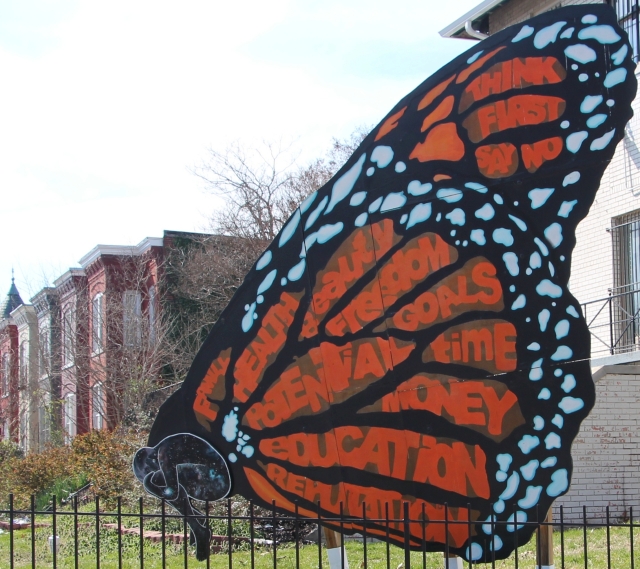
Additional links:
- The Cadena Case – A family-run sex trafficking organization in Brownsville, TX. Young girls and women were illegally smuggled into the US and forced into prostitution for 12 hours a day, 6 days a week. Customers were migrant workers and local community people. This case was the wake up call to create legislation that criminialized human trafficking.
- “Disposable People: New Slavery in the Global Economy” by Kevin Bales
- Trafficking Victims Protection Act (2000)
- Safe Harbor for Child Exploitation Act – Provides rights for children involved in prostitution under 18 on a state by state basis.
